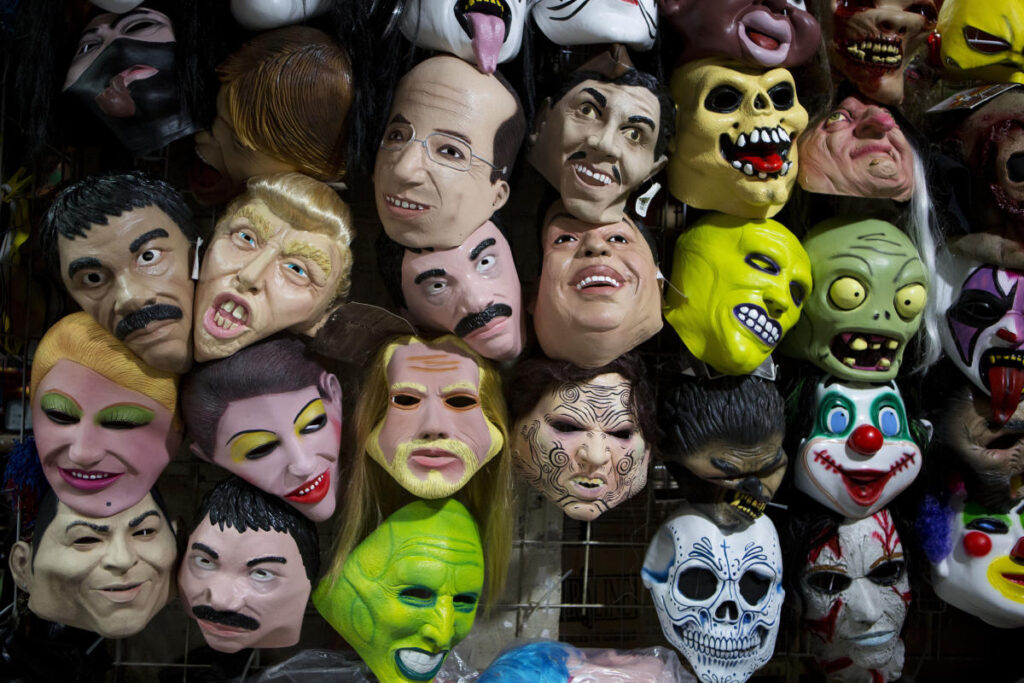Halloween is increasingly becoming a part of the cultural landscape in Mexico, yet this celebration arrives with a particular sense of concern due to the ongoing violence perpetrated by drug cartels in the country. The trepidation surrounding Halloween is not driven by fears that it will overshadow the traditional Day of the Dead festivities, which maintain a strong cultural significance and are set to occur this year without major complications. However, in cities heavily affected by cartel-related violence—such as Tijuana, Culiacan, and Hermosillo—authorities are alerting citizens to be cautious about wearing masks, a common way for cartel members to conceal their identities. Governments in these areas have issued recommendations regarding Halloween night in an effort to ensure citizen safety in an environment marred by fear and violence.
In Tijuana, local government officials announced a special security operation dubbed “Operation Halloween,” intended to safeguard the downtown celebrations that attract many participants. Local government secretary Arnulfo Guerrero emphasized the existing regulation that prohibits mask-wearing for adults, largely referencing the ski masks that are notably worn by criminals. Despite this precautionary measure, reports from social media depicted scenes of revelers in various horror-themed costumes, indicating that the enforcement of mask regulations was lenient or even overlooked in practice. Guerrero clarified that the goal was to protect families and maintain safety, rather than completely ban costumes, which are integral to the celebration.
In other violence-stricken areas, such as Sinaloa—currently enduring internal strife among factions of the Sinaloa cartel—police have echoed similar cautionary sentiments. The head of the police in that state issued a warning encouraging residents to refrain from late-night outings, trick-or-treating, or wearing disguises. The expression “at night, all cats are black” was used to convey the danger of confusion in dark settings, further emphasizing the precarious nature of security during the Halloween festivities. The contrast between the playful elements of Halloween and the grim reality of drug cartel violence creates a complex backdrop for social gatherings, shaping the behavior of participants and officials alike.
As the night unfolded, police and militarized National Guard officers were deployed to monitor the streets of Culiacan, which has been heavily impacted by cartel violence. Fortunately, the night of Halloween experienced relatively few incidents, with only isolated reports of gunfire. The military’s presence aimed to reassure citizens and curb violence during this unconventional celebration. Meanwhile, Hermosillo also echoed similar advisories against the public wearing of masks, revealing the widespread concern among authorities regarding the potential for Halloween festivities to be misused given the local context of cartel activity.
While fear looms in areas such as Tijuana, Culiacan, and Hermosillo, the broader cultural observation of Day of the Dead continues unabated in Mexico. The celebration honors those who have passed away, with festivities beginning on the evening of October 31 and continuing through November 2. Families gather in cemeteries and homes, adorning graves with marigolds, lighting candles, and preparing offerings of favorite foods and beverages belonging to their deceased loved ones. The Day of the Dead festivities represent a deep-seated Mexican tradition, serving as a reminder of the country’s rich cultural heritage amid concurrent fears of violence and danger during Halloween celebrations.
In conclusion, as Halloween becomes a more recognized celebration in Mexico, its juxtaposition with ongoing drug cartel violence brings about unique challenges and tensions. Authorities are navigating the fine line between permitting cultural celebrations while ensuring public safety. The commission of special security operations reflects the necessity for caution, especially in cities adversely affected by cartel conflicts. As the nation honors its deceased during the Day of the Dead, it illustrates resilience and the ability to unite in the face of adversity, highlighting the enduring significance of cultural traditions in providing a sense of identity and community, even amid darkness.

